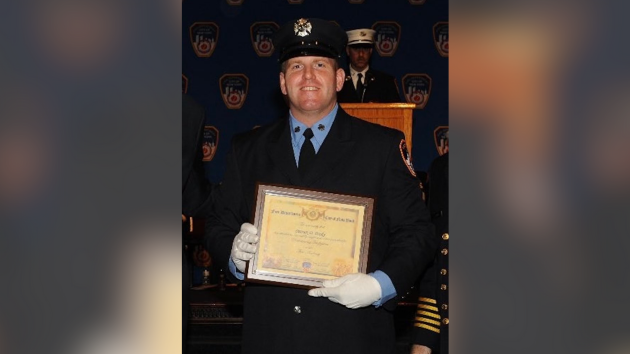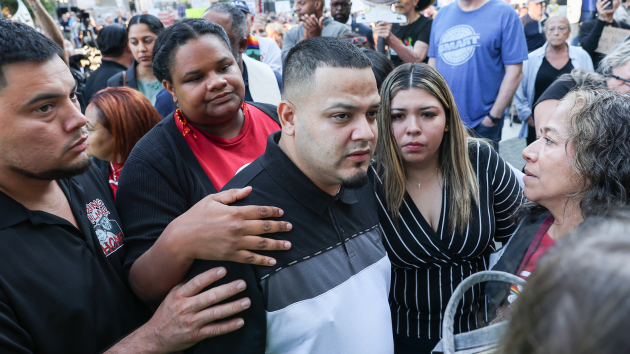
(NEW YORK) — The family of an Arizona man killed in a road rage incident nearly four years ago brought him back last week as an AI-generated image to face the man responsible for his killing give an impact statement to the judge.
The video message created by Christopher Pelkey’s sister that used his likeness and voice during the May 1 sentencing was the first time the technology was used in an Arizona court at a sentencing, according to records.
Pelkey was killed in November 2021 by Gabriel Paul Horcasitas, who was ultimately convicted of manslaughter charges. The AI-generated Pelkey spoke to Horcasitas in court and sought forgiveness.
“In another life, we probably could have been friends,” the avatar said in the video. “I believe in forgiveness and in God who forgives. I always have and I still do.”
Stacey Wales, Pelkey’s sister, told ABC affiliate KNXV that the slain victim’s friends and family “agreed this capture was a true representation of the spirit and soul of how Chris would have thought about his own sentencing as a murder victim.”
Wales said she wrote the script for the video and noted that her brother was a forgiving, God-fearing man.
Dozens of other family members also provided victim impact statements and expressed anger over Horcasitas’ actions.
Prosecutors asked the judge for Horcasitas to be sentenced to nine and a half years in prison, but Judge Todd Lang ultimately issued a 10 and a half year sentence. Lang said he was moved by the AI-generated video.
“I loved that AI, thank you for that. As angry as you are, as justifiably angry as the family is, I heard the forgiveness,” the judge said during the sentencing. “I feel that that was genuine.”
Horcasitas’s attorney, Jason Lamm, told ABC News that he was not given advanced notice about the video. He argued in court that Pelkey was the one who instigated the road rage incident and what the judge heard was a “kinder, more gentle” version of Pelkey.
“I appreciate the fact that victims have the right to address the court, and this was a cathartic endeavor for Stacey Wells, but this was cringe,” Lamm told ABC News.
He said he has filed a notice of appeal for his client and that the use of the AI-generated video will likely be one of the points of contention.
“This will be a bellwether case not just for Arizona but also courts around the country to rule on the use of AI in victim impact statements,” Lamm said.
Arizona Supreme Court Chief Justice Ann Timmer provided a statement to KNXV about the use of AI in court cases.
“AI has the potential to create great efficiencies in the justice system and may assist those unschooled in the law to better present their positions. For that reason, we are excited about AI’s potential. But AI can also hinder or even upend justice if inappropriately used,” she said in her statement.
“A measured approach is best. Along those lines, the court has formed an AI committee to examine AI use and make recommendations for how best to use it. At bottom, those who use AI—including courts—are responsible for its accuracy,” she added.
Copyright © 2025, ABC Audio. All rights reserved.
- NYC firefighter dies after ‘medical episode’ while battling 5-alarm Brooklyn fire - November 9, 2025
- More than 1,100 flights canceled Sunday amid nationwide air travel disruption - November 9, 2025
- In SNAP appeal, Trump administration says it faces more harm than people who can’t buy food: ANALYSIS - November 8, 2025











